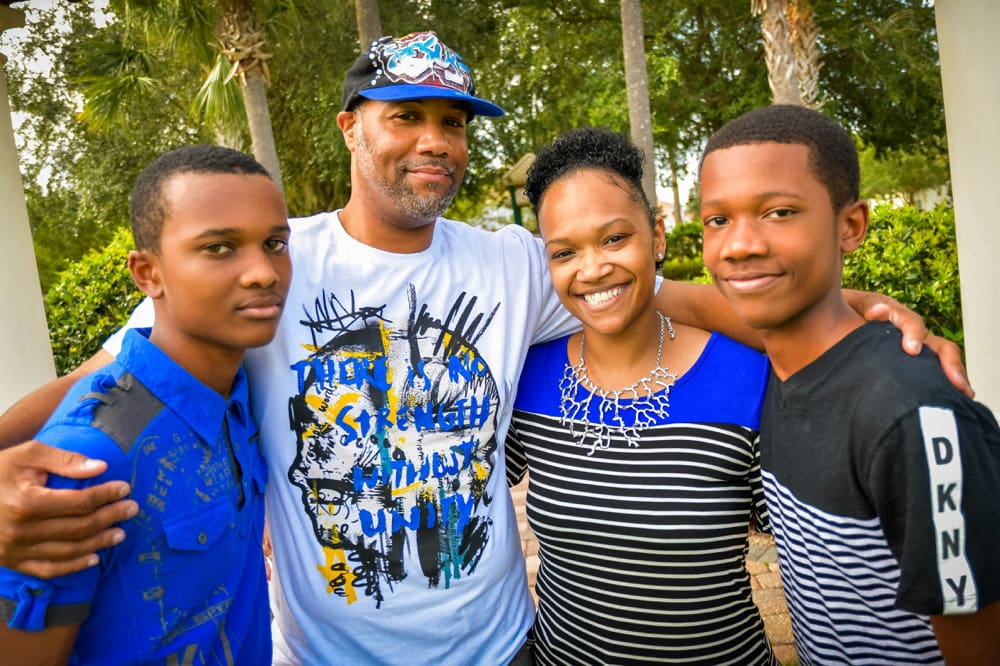When someone gets arrested, their criminal history plays a major role in determining bail eligibility and amount. At Ron Owens Bail Bonds, we look at criminal records as an important indicator of reliability. As Doris Owens, Owner of Ron Owens Bail Bonds, explains, “Criminal record is very important… it’s like a resume. If you call me or come in wanting to be bonded out, the first thing I’m going to do is get my computer and look at your record.”

How Criminal History Impacts Bail Decisions
The impact of prior criminal records on bail starts with the magistrate or judge. When evaluating whether to set bail and determining bail amounts, they carefully review the defendant’s criminal history along with the severity of current charges.
According to Doris, cases involving serious charges like child pornography may not receive immediate bail. “In cases of this nature, defendants typically remain in custody for approximately 30 days until their case can be heard by a judge,” she explains. “At that point, the judge reviews the complete case, including criminal history and current charges, to determine whether bail should be granted and under what conditions.”
In these situations, factors like the severity of the alleged crime and the defendant’s prior criminal history can lead magistrates to deny immediate bail. Instead of setting bail at arraignment, they require the defendant to remain in custody until a full bail hearing before a judge. This allows the court to:
- Thoroughly review the defendant’s complete criminal record
- Assess any threat to public safety
- Consider input from the prosecutor and criminal defense attorneys
- Make a more informed decision about bail eligibility and conditions
This cautious approach is particularly common in cases involving:
- Violent crimes
- Offenses against minors
- Cases with extensive prior convictions
- Situations where the defendant poses a potential danger to the community
How Prior Court Appearances Impact Bail Eligibility
One of the most significant factors influencing bail decisions is a defendant’s history of appearing in court. A Failure to Appear (FTA) in court is a serious concern that can lead to denial of bail or higher bail amounts. When evaluating bail eligibility, judges and bail bondsmen carefully examine any history of violating court appearance requirements.
“When reviewing a defendant’s prior criminal history, we pay particular attention to court attendance records,” explains Doris Owens, Owner of Ron Owens Bail Bonds. “With one missed court appearance, we conduct a thorough evaluation to understand the circumstances. However, multiple FTAs indicate a significant risk of flight (flight risk), which makes us unable to assist with bail.”
These records are crucial because:
- They help assess the risk of flight when releasing the defendant
- They influence whether a judge may grant bail or deny bail altogether
- They can lead to higher bail amounts being set by the court
- They impact whether bail bondsmen will assist with posting bail
An FTA on someone’s record doesn’t just affect their current case – it can influence bail decisions in future criminal cases as well. Even for misdemeanors and nonviolent offenses, a history of missing court appearances may result in:
- Denial of release on recognizance
- Requirement for cash bail rather than a bail bond
- Additional bail conditions like electronic monitoring
- Higher bail amounts to ensure public safety and court attendance
This is particularly important in 2024 as bail reform continues to evolve. While the criminal justice system aims to balance public safety with the rights of the accused person, a demonstrated history of violating court appearance requirements remains a key factor in determining bail eligibility and conditions.
Length of Criminal History & Repeat Offenders
The extent of someone’s criminal record matters significantly. As Doris notes, “You have people that have two, three, four pages of criminal history. If you have that much, then I can’t do it. It’s too messy. I don’t care if you’re a mama, a daddy getting them out – it’s just too messy.”
The extent of someone’s criminal record plays a significant role in bail eligibility. “When reviewing a defendant’s history, we carefully evaluate the scope and pattern of previous charges,” explains Doris Owens, Owner of Ron Owens Bail Bonds. “You have people that have two, three, four pages of criminal history. In these cases, the recurring nature of their legal issues often makes them ineligible for our services. This policy applies uniformly, regardless of family relationships or who is attempting to secure the bond.”
How Community Ties Affect Bail Eligibility
The criminal justice system considers more than just prior records and previous convictions when evaluating whether to grant bail or set bail amounts. Community ties play a crucial role in bail decisions, particularly when the case involves serious felonies or multiple convictions.
“Strong community connections can positively impact bail eligibility, even when facing criminal charges,” explains Doris Owens, Owner of Ron Owens Bail Bonds. “When looking at a case where a loved one has been arrested, we look closely at their ties to the area and stability factors. These connections help assess both flight risk and potential threat to public safety.”
Key factors that may affect bail decisions include:
- Family Stability
- Immediate family in the local area (parents, spouse, children)
- Long-term residence in the community
- Responsibility for dependent family members

This image is processed by “Batch Resize Pictures”. Official website homepage: http://www.arwer.com (Upgrading to professional features will no longer display this information)
- Employment and Financial Ties
- Stable work history
- Local business ownership
- Property ownership
- Financial obligations in the community
- Legal Status and History
- Current probation or parole status
- Pending cases in other jurisdictions
- Any bail money already posted for other charges
- Severity of the alleged current offense
Even when the criminal law and bail laws suggest higher bail amounts based on the severity of charges, strong community ties can help demonstrate that the accused person is not a danger to the community. This is particularly important when a pending case and bail may be denied based on other risk factors.
“A defendant with strong local connections and family support often presents a lower flight risk,” notes Doris. “These factors become especially important during the bail hearing when decisions are made about eligibility for bail and specific bail conditions.”
For those seeking help with legal issues related to bail, working with an experienced bail bondsman who understands how community ties affect bail decisions can significantly affect your case’s outcome.
Types of Criminal Records & Prior Offenses That May Allow Bail
Not all criminal records automatically disqualify someone from getting bail. According to Doris, Ron Owens Bail Bonds regularly works with defendants who have certain types of prior convictions:
- Traffic violations including DUIs
- Simple assault and battery cases (often family disputes)
- Breaking and entering
- Embezzlement
- Minor offenses
“Simple things,” as Doris describes them, particularly with limited occurrences, may still qualify for bail bonds. However, she emphasizes that “I don’t like a long list of it.”
When Criminal Records Lead to Bail Denial
Certain criminal histories raise serious concerns that may result in bail denial or bondsmen declining to provide service:
Out-of-State Cases and Their Impact on Bail
When it comes to criminal defense and bail eligibility, cases involving multiple jurisdictions present unique challenges that can significantly impact bail decisions. These situations often lead to higher scrutiny and more complex bail conditions, particularly when a defendant has minimal ties to the community where their case is pending.
“Cross-jurisdictional cases require careful evaluation due to increased flight risk,” explains Doris Owens, Owner of Ron Owens Bail Bonds. “When we see someone was extradited from another state to Hampton, it raises serious concerns about their local connections and likelihood to appear in court. Even with judicial stipulations in place, these cases present too much risk for our bail bond service.”
Several factors make out-of-state cases particularly challenging:
Limited Community Ties
- No established residence in the area
- Lack of local employment history
- Minimal family connections in the jurisdiction
- Higher potential for criminal activity across state lines
Jurisdictional Complications
- Multiple pending cases in different states
- Uncertainty about where the defendant will reside if released on bail
- Coordination between different law enforcement agencies
- Complex legal requirements across state lines
The bail set in these cases often reflects these additional risks. Even when bail is set at a standard amount, many professional bail bond services may decline to assist due to the heightened flight risk. This is particularly true in cases where:
- The alleged crime occurred in another state
- The defendant was previously released on bail in another jurisdiction
- There’s a history of crossing state lines to avoid prosecution
- The case involves serious charges that could impact public safety
“Unlike local cases where we can verify community connections and monitor compliance more effectively, out-of-state cases present too many variables,” Doris notes. “Our priority is maintaining the integrity of the bail bond system while ensuring community safety.”
For those facing multi-jurisdictional charges, working with a criminal defense law office to coordinate bail hearings and establish clear conditions for release becomes especially important. This can help address concerns about flight risk and potentially lead to more favorable bail conditions.
Violent Offenses and Public Safety Concerns
Doris is particularly cautious with cases involving:
- Child abuse
- Domestic violence
- Cases where public safety is at risk
“When it comes to kids, like anything that’s in JDR (Juvenile and Domestic Relations Court), I just don’t like it,” she states. “Or even a husband who was totally abusive.”
Getting Legal Help Before Seeking Bail
If you have a criminal record and know you need to turn yourself in, seeking legal advice first can improve your chances of getting bail. “If they’re doing the right thing, they’ll seek attorney help before they get there,” Doris explains. “Some of them will seek attorney help or they’ll even seek an ombudsman, putting an ombudsman in position so that when they turn themselves in, they’ll already have everything set up for them.”
The Ron Owens Bail Bonds Difference
We take our role in the criminal justice system seriously. We carefully evaluate each case to ensure we’re making responsible decisions for both our business and the community.
“I’d rather get 500 bonds and have good bonds than do 1,000 and then have to run after them,” Doris says.
Contact Us for Bail Bond Assistance
If you or a loved one needs help navigating the bail process, contact Ron Owens Bail Bonds. We’re available 24/7 to evaluate your case and provide honest, professional guidance about your bail eligibility. Our experienced team will review your situation thoroughly and help you understand your options.
Remember: The sooner you reach out, the sooner we can begin working to help you or your loved one. Call us today to discuss your case and learn how we can assist you through this challenging time.